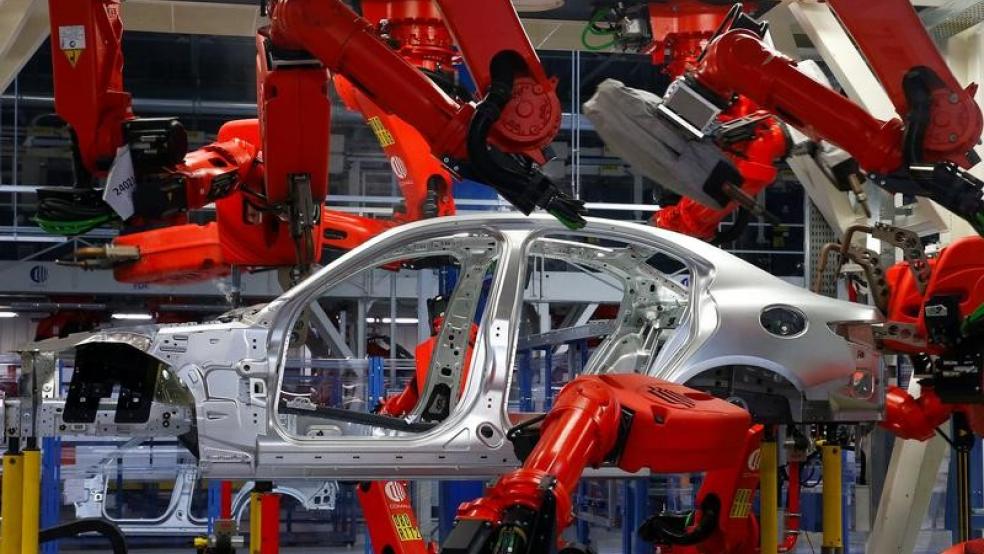Job creation is a big part of the Republican pitch on tax reform. Just today, Senate majority Leader Mitch McConnell penned an op-ed on NBC News that claimed the tax plan would “unleash the potential of American enterprise to create more jobs and keep more of them here.” But there are plenty of reasons to be skeptical about whether the GOP tax plan, in its current form, can deliver on its jobs promise.
Last week, Josh Bivens and Hunter Blair of the liberal Economic Policy Institute took aim at the claim that corporate tax cuts will lead to more jobs, writing that “Corporate tax cuts are about the worst fiscal tool we have for boosting job growth.” And on Wednesday, Scott Greenberg of the conservative Tax Foundation questioned whether the GOP plan to encourage U.S. corporations to repatriate profits held overseas would boost the economy and thus create more jobs, tweeting, "everyone should be skeptical of claims that repatriation of foreign-source income would lead to growth.”
The problem in this case is the structure of the proposed tax cuts, which are focused on the wealthy. According to many economists, tax cuts for top earners and corporations do little to promote job growth. “To put it simply, spending of rich households is not constrained by too-low incomes, so giving them more income does little to induce more spending,” the EPI economists argue.
Other economists agree. An analysis by a University of Chicago economist published by the National Bureau of Economic Research found that “the positive relationship between tax cuts and employment growth is largely driven by tax cuts for lower-income groups, and that the effect of tax cuts for the top 10% on employment growth is small.” The liberal Center on Budget and Policy Priorities argues that “Most corporate rate cuts go to high-income investors and don’t ‘trickle down’ to workers. Contrary to claims that workers will benefit as companies invest more and thereby boost jobs or wages, mainstream estimates are that only a very small share of corporate rate cuts eventually flows to workers.”
The basic question is simple: What will U.S. corporations do with the money they save from tax cuts?
Reuters tried to find out by contacting 150 small- and medium-sized companies. Of the 17 that responded, none were planning on hiring more employees in the event of a tax windfall. Instead, businesses are focused on acquiring technology to boost productivity and possibly making acquisitions within their industries. Other options for the money include share buybacks and boosting advertising and marketing budgets. Thomas Castellano, the treasurer of the $5 billion drug delivery firm Catalent Inc., told Reuters, “We wouldn’t be adding to our headcount because that would affect our margins at a time when we would otherwise see them improving.”
The possibility that a tax cut could boost spending on automation isn’t going unnoticed on Wall Street. A separate Reuters piece last week said that fund managers expect the current rally in automation stocks to continue since “companies will use part of their tax savings to invest in high-cost machines that will allow them to reduce labor costs over time.”




